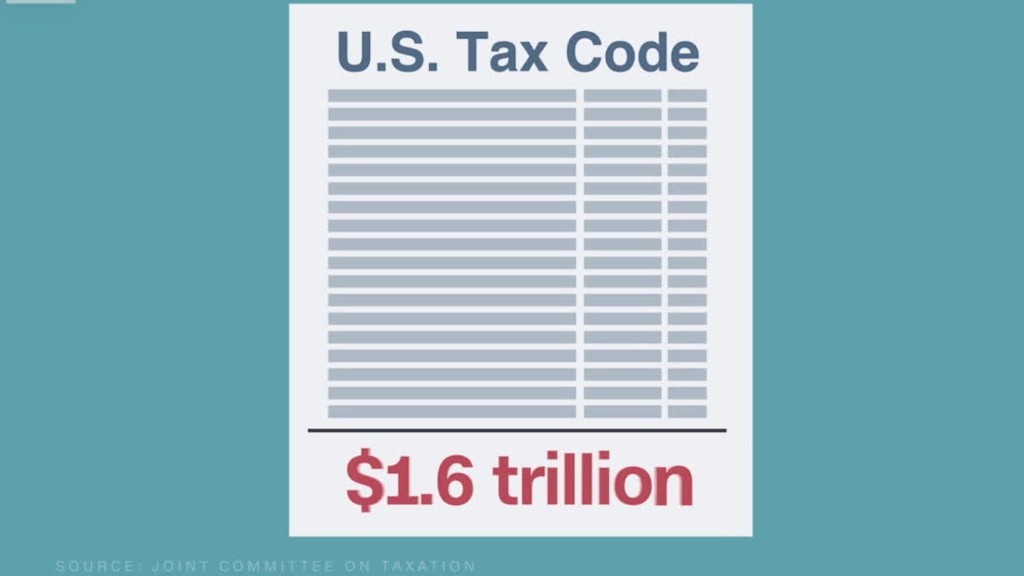
Some of the most hardline fiscal conservatives in the House on Friday made clear that for all their distaste of debt, they could live with tax cuts that add to it.
Top members of the Freedom Caucus, speaking at the Heritage Foundation, also laid out other elements that they'd like to see in any tax package, which they want lawmakers to pull together before going on their August recess.
Support from the 40 or so Freedom Caucus members could be critical to the passage of any tax bill this year if Republicans can't garner any support from Democrats. So their demands could influence the debate.
Here are some key items on their wish list:
No tax increases to pay for tax cuts: Republican leaders have been calling for tax reform to be revenue neutral -- meaning that any revenue loss from the big tax cuts they want would be offset by revenue increases from other tax changes as well as economic growth.
But many Freedom Caucus members don't believe in paying for tax cuts with tax increases, like the estimated $1 trillion that could be generated by the controversial Border Adjustment Tax featured in the House GOP Better Way blueprint. The BAT has been estimated to raise more than $1 trillion over a decade.
They also believe tax cuts are needed for economic growth.
"A lot of us have some flexibility with respect to deficits when it comes to taxes. This is a once-in-a-century opportunity to get this economy humming again for a decade. And we're pro-growth people," Representative Dave Brat said.
Never mind that many economists warn that deficit-financed tax cuts will undermine growth potential and leave the country with ... well, higher deficits.
Tie welfare reform to tax reform: Others, like Representative Jim Jordan, think the focus should be on deficit neutrality, not revenue neutrality. In other words, tax cuts would be paid for not only with growth but with spending cuts.
But those spending cuts will be hard to negotiate. Jordan warned that Republicans are nowhere near agreement on the fiscal year 2018 budget they need to write. So he and others might be okay with a tax bill adding to deficits, under one condition.
"Maybe we can live with a higher budget number if we do real welfare reform on that tax bill," Jordan said.
Related: Trump says his tax bill is 'moving along.' Except it doesn't exist
Tax cuts for all businesses, not just corporations: Freedom Caucus Chairman Mark Meadows laid out a few other must-haves for his members. He said he'd like to see a 20% rate for both corporations as well as pass-through businesses, which include everything from mom-and-pop shops to partnerships and limited liability corporations
"If it's just a corporate cut for the big guys, it leaves a whole lotta mainstream businesses off,"Meadows said.
The House Better Way blueprint proposes a 20% rate for corporations and a 25% rate for pass-throughs.
Corporate tax break on overseas profits: Meadows said the caucus would like to see a much lower rate -- 8% -- applied to corporations' overseas profits to encourage U.S. multinationals to bring money back home over a period of 20 months. Today they would be subject to a 35% rate when they repatriated the profits minus whatever tax they paid on them to a foreign government.
Tax cuts for average families: In addition to businesses, workers should get a break too. "Doubling the standard deduction puts money back in the wallets of people on Main Street," Meadows said.
That may be true for many, but only if other changes in the tax bill don't undercut those potential savings.


